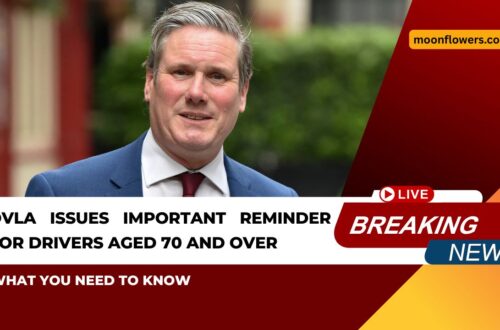Drivers aged 70 and above across the UK are being encouraged to undergo voluntary driving assessments ahead of a major 2027 driving regulation reform.
The goal is to ensure that elderly motorists maintain safe driving standards, reduce road accidents, and feel more confident behind the wheel.
Several local councils have already launched pilot schemes offering free or low-cost mature driver assessments between now and 2027.
This initiative comes as part of a nationwide push to create a standardised evaluation framework for senior drivers.
Why the Mature Driver Test Is Being Introduced
Experts highlight that age-related changes in vision, reaction times, and cognitive ability can impact driving performance. While many older drivers remain safe and cautious, statistics show a rising number of collisions involving drivers over 70 in recent years.
Authorities believe that regular skill assessments can help identify risky habits early and allow older drivers to make informed decisions about continuing to drive or voluntarily retiring from the road.
The program is being developed through collaboration between major road safety organisations, aiming to balance safety and independence for senior drivers.
Key Facts About the Mature Driver Test
| Details | Information |
|---|---|
| Target Age Group | Drivers aged 70 and above |
| Purpose | Evaluate driving skills and ensure road safety |
| Test Cost (Current) | Around £49 (free in some areas until 2027) |
| Test Cost (Post-2027) | Will be charged nationwide after standardisation |
| Regions Testing the Program | Buckinghamshire, Cheshire West and Chester, Gloucestershire, Leeds, Warwickshire |
| Funding for Research | £104,050 granted to support the project |
| Organisations Involved | PACTS, Road Safety Trust, Older Drivers Forum, University of Warwick |
| Test Format | Real-world drive on local roads with assessor feedback |
| Assessment Areas | Vehicle handling, judgement, hazard perception, observation |
| Implementation Goal | National rollout of standardised assessments by 2027 |
How the Test Works
The mature driver assessment is designed as a real-world driving session, usually lasting around an hour. Drivers are asked to navigate familiar local routes while being observed by trained assessors.
The assessors focus on critical driving skills, including:
- Vehicle control and handling
- Decision-making and reaction times
- Awareness of pedestrians and cyclists
- Ability to follow road signs and signals
After the drive, each participant receives detailed feedback on strengths and areas needing improvement. This feedback is meant to build confidence, encourage safer driving habits, and help those who may be losing confidence behind the wheel.
Standardising the Assessments Nationwide
Currently, mature driver evaluations vary by region, with differences in test length, cost, and criteria. This has caused confusion for older motorists and their families.
By 2027, experts aim to introduce a standardised national framework for these assessments, ensuring consistent quality and fairness across all regions. Once standardised, these evaluations will become paid services, replacing the current free or subsidised versions being trialled.
The move is expected to enhance road safety outcomes and create a uniform benchmark for assessing older drivers’ abilities.
Balancing Safety and Independence
Supporters of the initiative emphasise that the program is not about forcing older people off the road, but empowering them with knowledge and confidence.
Driving often represents freedom and independence for older adults, and losing that ability can have emotional and practical impacts. These assessments are meant to provide reassurance for safe drivers and identify those at higher risk of accidents in a supportive way, not a punitive one.
The upcoming 2027 rule change marks a major shift in how the UK approaches elderly driver safety. By encouraging drivers over 70 to complete mature driving assessments now, authorities hope to reduce road accidents, boost confidence, and preserve independence for older motorists.
With funding, structured evaluations, and expert-backed training, this initiative could reshape road safety for years to come — ensuring that age does not compromise responsibility or safety on the roads.
FAQs
Who needs to take the mature driver test?
Drivers aged 70 and above are the primary focus, though younger seniors may also opt in voluntarily if they want to assess their skills.
How much does the mature driver assessment cost?
Currently, tests cost about £49 but are free in some regions until 2027. After standardisation, they will be charged nationwide.
What happens after the test is completed?
Drivers receive personalised feedback highlighting strengths and areas for improvement. It’s not a pass/fail test, and drivers can decide whether to continue driving.









